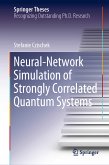In recent years there has been an explosion of interest in applications of quantum theory in fields beyond physics. The main areas include psychology, decision-making, economics, finance, social science as well as genetics and molecular biology. The corresponding models are referred to as quantum-like; they don't concern any genuine physical processes in the human brain.
Quantum-like models reflect the special features of information processing in biological, cognitive, and social systems which match well with the quantum formalism. This formalism gives rise to the quantum probability model (QP) which differs essentially from Kolmogorov's classical probability model. QP also serves as the basis for quantum information theory.
Recently QP has been widely applied to the resolution of the basic paradoxes ofdecision making theory and to modeling experimental data stemming from cognition, psychology, economics, and finance thereby shedding light on probability fallacies and irrational behavior.
In this book, the theory of quantum instruments and the quantum master equation are applied to the modeling of biological and cognitive processes, in particular, to the stability of complex biological and social systems interacting with their environment. An essential part of the book is devoted to the theory of the social laser and the Fröhlich condensate.
Dieser Download kann aus rechtlichen Gründen nur mit Rechnungsadresse in A, B, BG, CY, CZ, D, DK, EW, E, FIN, F, GR, HR, H, IRL, I, LT, L, LR, M, NL, PL, P, R, S, SLO, SK ausgeliefert werden.









